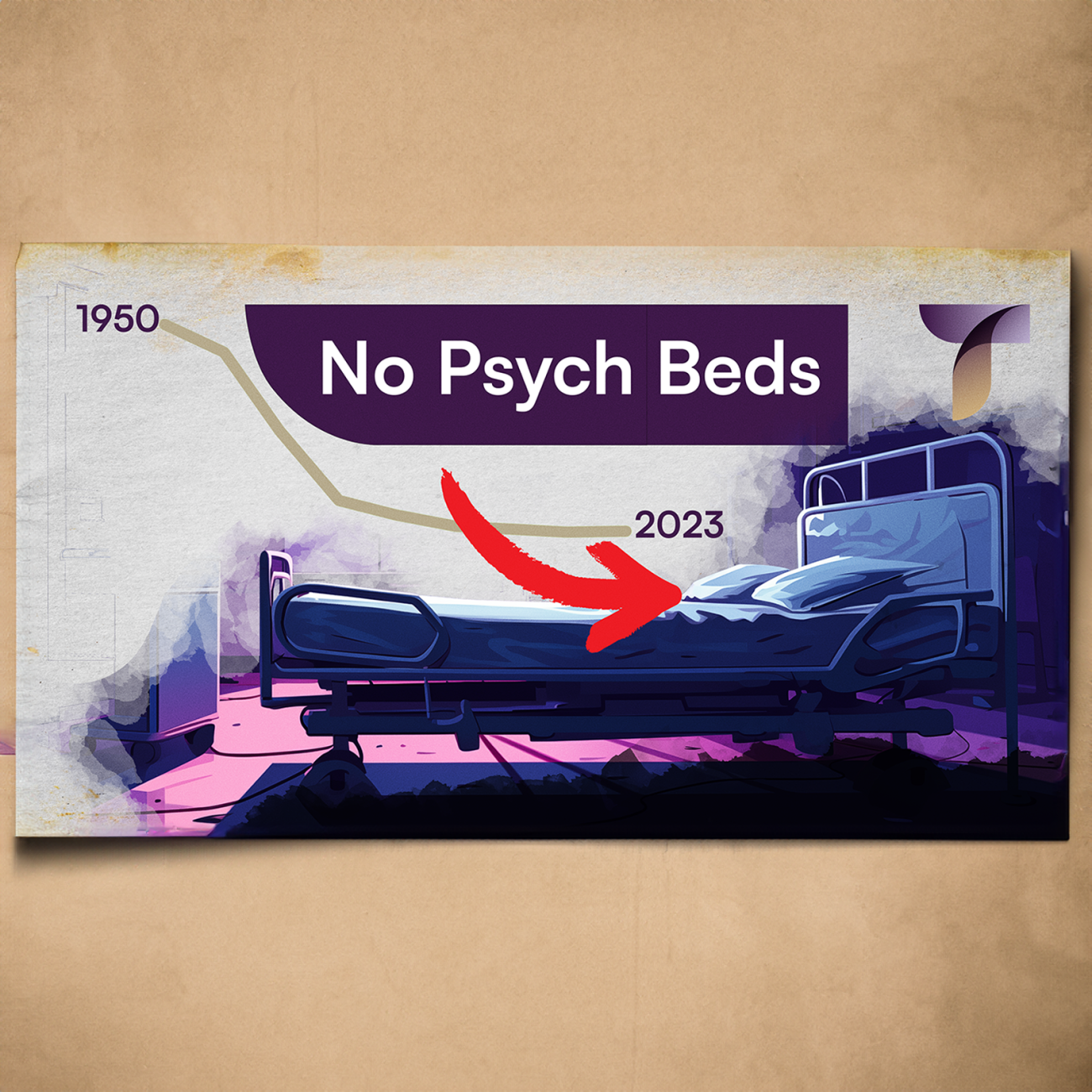Prevention Over Punishment: Finding the Right Balance of Civil and Forensic State Psychiatric Hospital Beds

The number of state psychiatric hospital beds for adults with severe mental illness has continued to decline to a historic low of 36,150, or 10.8 per 100,000 population in 2023, with a majority of state hospital beds occupied by people who have been committed to the hospital through the criminal legal system. This strategy of prioritizing admission of forensic patients effectively creates a system where someone must be arrested to access a state hospital bed in many states.
As the number of state hospital beds continues to decline, finding the right balance of civil and forensic beds is critical. Without considering this balance, people with SMI who need long-term intensive care will continue to be pushed into the criminal legal system at alarming rates. While it is important to provide individuals with SMI who are waiting in jail for a bed with timely access, states must also strive for prevention over punishment.
Key Findings
- By all measures of bed need, the United States is facing a shortage of state psychiatric hospital beds.
- The number of state hospital beds has reached a historic low of 10.8 beds per 100,000 population.
- An increasing number of the remaining beds are being utilized for forensic patients, leaving fewer and fewer beds for civil patients.
- Forensic bed waits remain an issue, with significant and sometimes tragic consequences.
- Staffing shortages, lack of appropriate discharge facilities and the COVID-19 pandemic have all contributed to the loss of psychiatric beds in the more recent years.
This report’s data was last updated on February 7th, 2024

